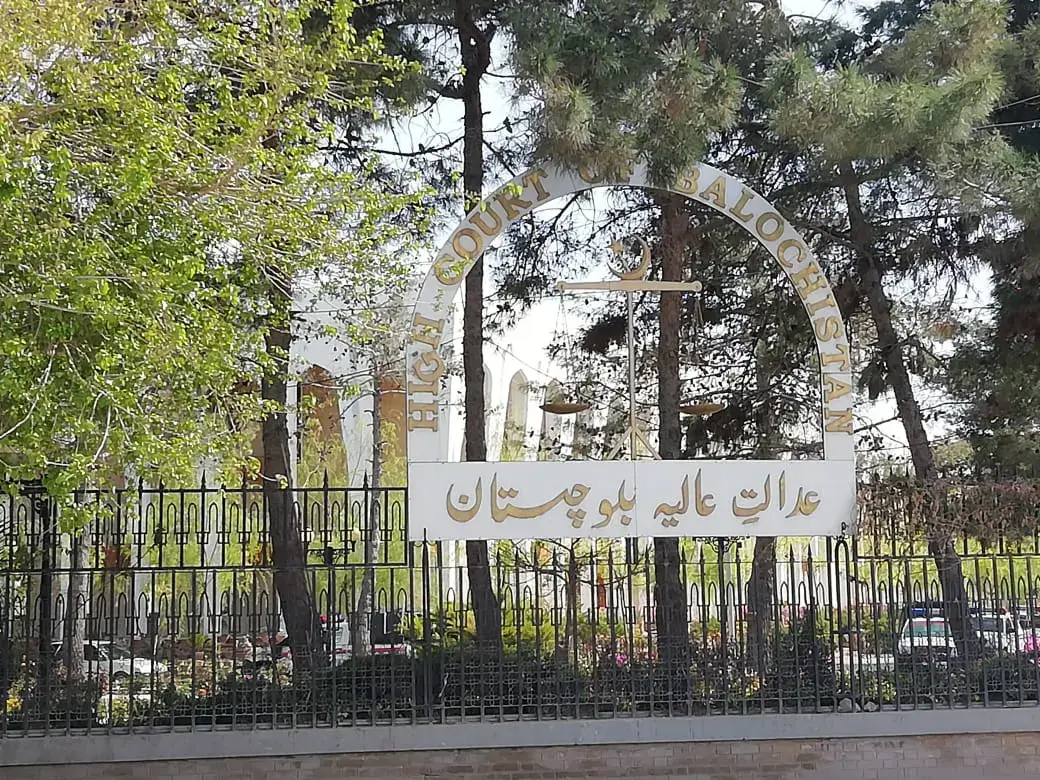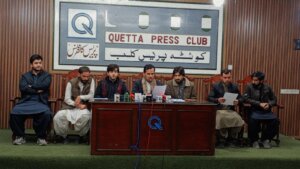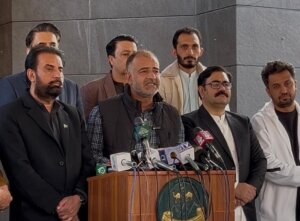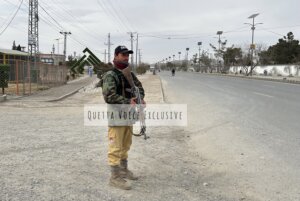Syed Ali Shah:
In a landmark and historic decision, the Balochistan High Court has ruled that terrorism convicts sentenced under the Anti-Terrorism Act (ATA) 1997 are not entitled to any presidential or general pardons.
According to the two-member bench comprising Justice Muhammad Kamran Khan Mulakhail and Justice Najamuddin Mengal, Section 21-F of the Anti-Terrorism Act explicitly prohibits any pardon, commutation, or remission for individuals convicted of terrorism. The court declared that this clause admits no interpretation, relaxation, or exception.
Court’s Key Observations
The petitioners had claimed they were eligible for presidential clemency under Article 45 of the Constitution of Pakistan and for general or special remissions under the Pakistan Prison Rules 1978.
However, the court ruled that Section 21-F, introduced in 2001, was specifically designed to permanently exclude terrorism convicts from the scope of any pardon or reduction in sentence.
The judges stated that this legislation was a deliberate step to ensure public safety and national security amid a rise in terror-related incidents. The ATA 1997, being a special law, holds supremacy over general laws, including the Prisons Act 1894.
No Violation of Equality Before Law
The bench rejected the argument that excluding terror convicts from pardons violates Article 25 (Equality Before Law).
The court noted that terrorism convicts form a distinct legal class, and their separate treatment is reasonable classification, not discrimination.
The judgment referenced Supreme Court precedents including the Sherwani Case, Government of Balochistan vs Azizullah, and Dr. Mubashir Hasan vs Federation of Pakistan, affirming that rational classification is constitutionally valid.
Strong Directives to Authorities
The Balochistan High Court directed the Home Department, Inspector General of Prisons, and relevant Superintendents to:
- Withdraw all illegal pardons and remissions granted to terrorism convicts.
- Reassess the sentences of all affected prisoners.
- Ensure that future pardons strictly comply with all legal requirements.
- Initiate disciplinary action against any official violating these directives.
Certified copies of the judgment were ordered to be sent to the Secretary Home, Secretary Law, Advocate General, Prosecutor General, Secretary Tribal Affairs, and IG Prisons, to ensure immediate implementation.
Mandatory Serving of Two-Third Sentence
The court ruled that all convicted prisoners, whether sentenced to life imprisonment or lesser terms, must serve at least two-thirds of their original sentence, in accordance with Rule 217 of the Pakistan Prison Rules 1978.
Only those prisoners granted extraordinary clemency in line with law are exempt.
The court further ordered the IG Prisons Balochistan to review the B-Class privileges granted to prisoner Ajab Khan and submit a comprehensive list of all prisoners enjoying such privileges.
Illegal Remissions and Abuse of Clemency
The court expressed serious concern over illegal remissions and early releases, terming them discriminatory and unconstitutional, violating Articles 4, 9, and 25 of the Constitution.
Examples highlighted include:
- Sona Khan, who served 9 years and 4 months but received over 15 years of remission.
- Amanullah, who served 8 years yet obtained more than 9 years of sentence reduction.
The court called these actions a gross violation of the law and contrary to justice and state policy.
Supreme Court References & Policy Justification
Referring to the Supreme Court rulings in Abdul Malik vs The State (PLD 2006 SC 365) and Nazar Hussain (PLD 2010 SC 1021), the court reaffirmed that while the President of Pakistan holds the power of pardon under Article 45, such power must be exercised in line with Islamic principles and state policy.
The judgment concluded that excluding convicts of terrorism, murder, rape, kidnapping for ransom, and armed robbery from pardon or remission is both legally sound and policy-wise justified.
Final Verdict
The Balochistan High Court’s judgment marks a major precedent in Pakistan’s judicial history, ensuring accountability, justice, and deterrence against terrorism. The court emphasized that unlawful clemency undermines the rule of law, and strict adherence to anti-terrorism statutes is crucial for national security and public confidence.






